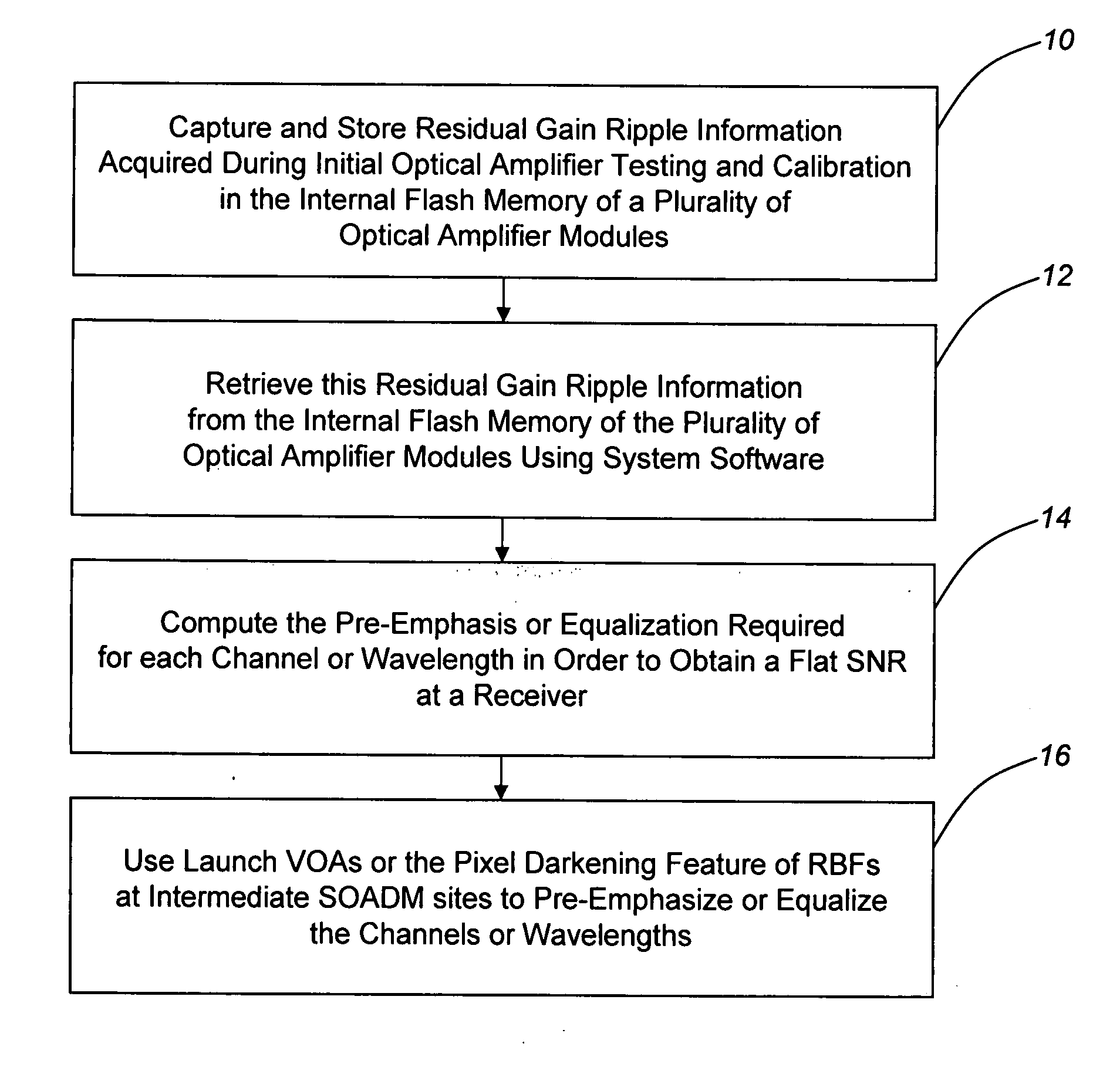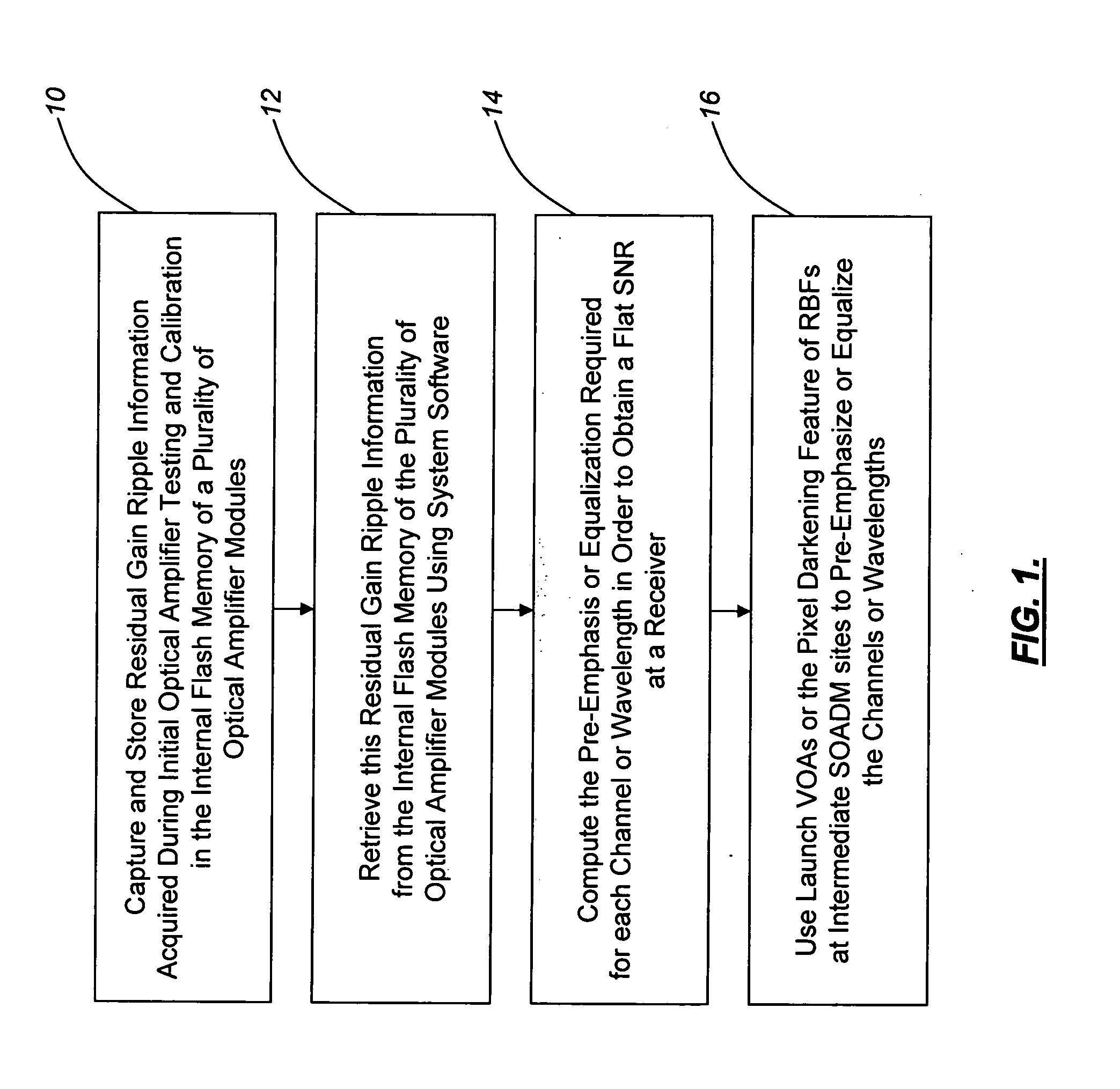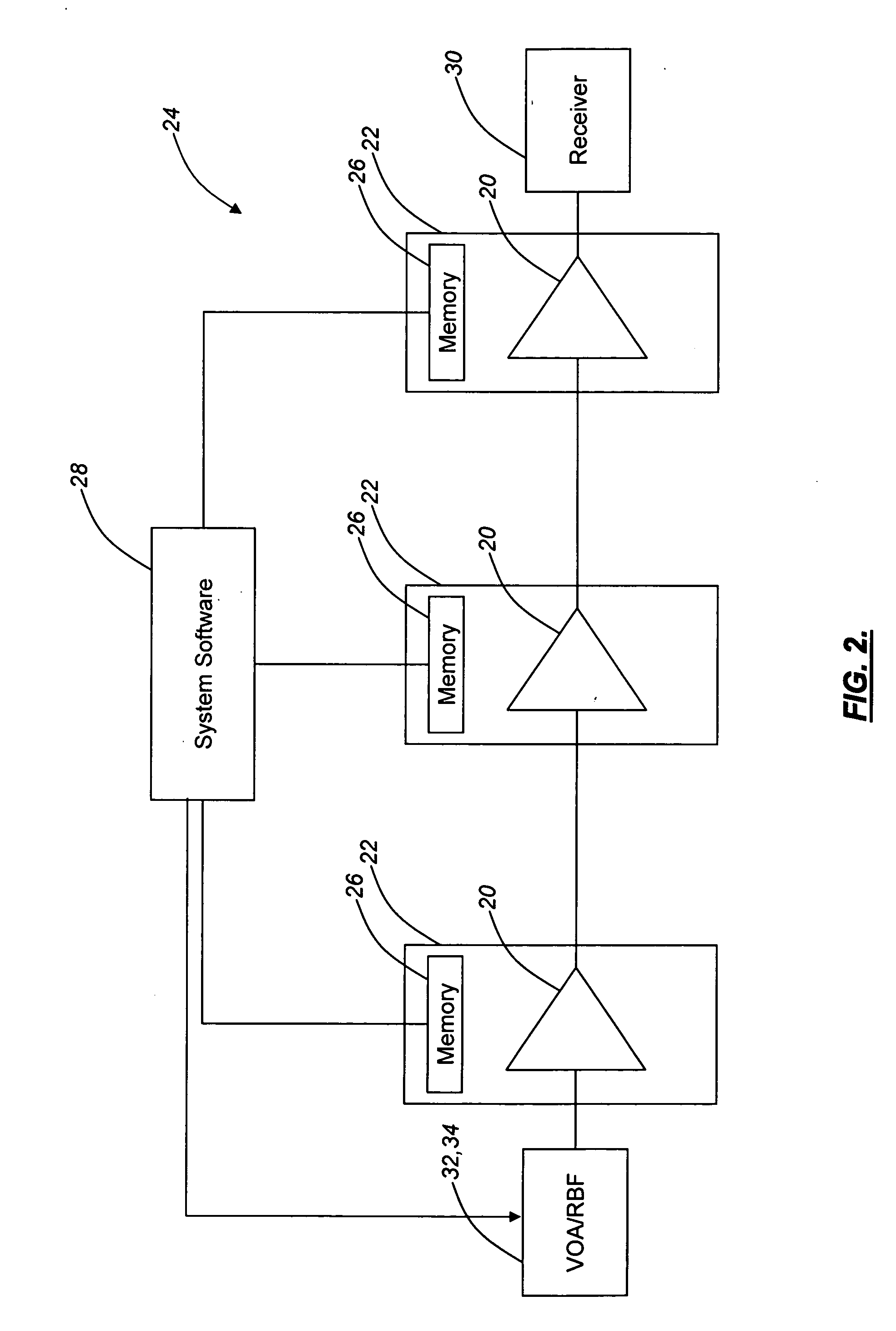Optical amplifier pre-emphasis and equalization method and optical communications system incorporating same
a technology of optical amplifiers and equalization methods, applied in the field of optical amplifier pre-emphasis and equalization methods and optical communications systems incorporating the same, can solve the problems of reducing the performance of bit error rate (ber) for some communications channels, introducing losses to offset gain peaks, and reducing the signal-to-noise ratio (snr) flat, efficient and cost-effectively alleviating the optical amplifier gain ripple penalty
- Summary
- Abstract
- Description
- Claims
- Application Information
AI Technical Summary
Benefits of technology
Problems solved by technology
Method used
Image
Examples
Embodiment Construction
[0021]As described above, conventional approaches for alleviating the optical amplifier gain ripple penalty involve the use of a gain equalization filter or the like. The gain equalization filter has a loss spectrum that tracks the gain spectrum of an optical amplifier, thereby introducing losses to offset gain peaks. Conventional approaches for alleviating the optical amplifier gain ripple penalty also involve the use of an OPM or the like for the active measurement of communications channel signal gain ripple at a receiver or an intermediate point in the optical amplifier chain and a feedback mechanism to provide this communications channel signal gain ripple information to a controlling element, such as a VOA, DGE, or the like. The drawback to these approaches is that OPM and DGE elements are relatively expensive, especially when used in low channel count optical communications systems.
[0022]In various exemplary embodiments, the present invention provides an optical amplifier pre...
PUM
 Login to View More
Login to View More Abstract
Description
Claims
Application Information
 Login to View More
Login to View More - R&D
- Intellectual Property
- Life Sciences
- Materials
- Tech Scout
- Unparalleled Data Quality
- Higher Quality Content
- 60% Fewer Hallucinations
Browse by: Latest US Patents, China's latest patents, Technical Efficacy Thesaurus, Application Domain, Technology Topic, Popular Technical Reports.
© 2025 PatSnap. All rights reserved.Legal|Privacy policy|Modern Slavery Act Transparency Statement|Sitemap|About US| Contact US: help@patsnap.com



